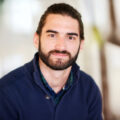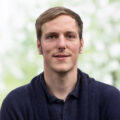Call for Participation
The 12th International Conference on Communities & Technologies (C&T 2025), themed “Approaching the Future, Embracing the Past,” invites workshop proposals that dives into the intricate relationships between communities and emerging technologies. Scheduled from July 20 – 23, 2025, at the University of Siegen, Germany, this conference seeks to foster interdisciplinary discussions and collaborations.
We encourage submissions from researchers, practitioners, educators, and community organizers across various disciplines. Join us in Siegen to explore how communities and technologies can co-evolve, drawing lessons from the past to inform future innovations.
In a nutshell:
- Deadline of Submission: May 9th, 2025 AoE
- Length: Half-day or full-day
- Format: Scientific and Practitioners track
- Participants: Min. 5
- Topics: Anything C&T-related (see topics below for suggestions)
- Presence: In person or hybrid (organizer presence obligatory).
- Publication: As part of Extended Abstracts in ACM digital library
Got an idea? Reach out! Vasilis and Timo will be happy to help via workshops@comtech.community
Workshop Proposal Themes
The theme of C&T 2025 is “Approaching the Future, Embracing the Past”.
Proposals are accepted from a variety of relevant perspectives including technology, philosophy, social sciences, policy, design, business, activism, health-care, industry, art, the humanities, and so on.
For more orientation, you can find this years’ 14 topics and fields of C&T 2025 on the homepage.
Workshops Description
Communities and Technologies is a challenging and rapidly developing area of research where the exchange of ideas and discussion of concepts with other researchers provide an effective way of gaining new insights and identifying opportunities for possible collaborations.
The C&T 2025 Workshops provide an opportunity to engage in discussions with other researchers, present and illustrate new developments on different themes within Communities and Technologies, provoke and reflect on novel perspectives, and receive feedback on early ideas in a convivial and constructive manner.
C&T 2025 invites workshop proposals addressing basic research questions, new methodologies and approaches, innovative technologies, and emerging research areas with a special focus on sustainability. We also encourage proposals that address computing’s impact on societal issues and/or the C&T communities’ broad interest in theories, methods, and approaches from other disciplines interested in working across societies and computing. Workshops are good venues for involving attendees in working together to share, reflect, and develop new insights.
At C&T 2025 we encourage workshops proposals that get out into the community and connect with local community groups. We are keen to help organisers who wish to hold a workshop in a specific community space (see a list of examples here) and who seek to collaborate with local movements and organisations. Workshops may be half-day or full-day sessions and involve field trips, site visits, or any other relevant activities in the community. Outcomes might include journal special issues, blogs, or new collaborations.
We encourage accepted workshop organizers to create web-based resources for their workshops so that advertising, submission, and organization can be handled online.
Submission Format and Process
Workshops submissions should:
- be no more than 3,000 words, excluding references, – include all authors’ names, affiliations, and contact information, an abstract (150 words) as well as a detailed proposal including a description of the theme(s), activities, and goals of the workshop, the maximum number of participants, the length of the workshops (half-day/ full-day), and the background of the organizer(s).
- specify the means of recruiting and selecting participants.
- specify any space requirements/ options (as agreed with Workshop Chairs) and additional equipment needed (including laptops, tablets, speakers, headphones, projectors); unless explicitly confirmed by the Chairs, the additional equipment must be supplied by the workshop organizers.
- be formatted according to the C&T template, available in Latex (Overleaf template), or MS Word template.
- Submissions should be in PDF.
- If you are submitting a workshop on accessibility or assistive technology, please refer to the SIGACCESS guidelines on writing about disability.
- an indication of targeted track (scientific/practitioners)
- Workshop submissions are not anonymous
Submission Format and Process
Proposal Submission Deadline: May 9, 2025 (AoE)
Notification of Acceptance: May 16, 2025
Workshop Date: July 20th (scientific Workshops), July 22nd (practitioners Workshops)
Selection Process
Proposals will be single-blind reviewed by the Workshops Chairs and selected members of the C&T program committee. Selection will be based on the relevance of the proposed topic for C&Tand this year’s themes, and the organizer(s) expertise.
Accepted workshops will need to provide an updated description of the workshop as well as workshop website, and details on position paper submission or other participation requirements, for publication on the conference website and in the ACM digital library.
Accepted workshops may provide an additional Workshop Program for publication in the ACM digital library. The program should contain the workshop title, 150 words abstract, objectives, participant names, and a body text and be no more than 2 pages.
Publication & Copyright Information
Accepted Panels are slated for publication in the European Society for Embedded Technologies (EUSSET) digital library as an edited collection with an ISBN. Each paper will be assigned a DOI.
Authors of accepted Panels be given choice to either (1) publish their papers in the EUSSET DL using one of the copyright options (see below), or (2) not publish in the EUSSET DL, but still have an opportunity to present their work at the conference. The second choice is provided because some authors may prefer to keep their poster or demo offline (not findable in a digital library) as they are preparing a full publication.
The EUSSET digital library (DL) is an open access repository. The EUSSET DL does not ask for a full transfer of copyright from authors. Instead, it requires only sufficient rights that allow “readers to read, download, copy, distribute, print, search and link to the full texts of articles, or use them for any other lawful purpose except where otherwise noted” (for full information please see here: https://www.eusset.eu/digital-library/).
The authors will have several options when it comes to copyright upon paper acceptance:
- grant EUSSET DL a non-exclusive and irrevocable license to distribute the article and certify that he/she has the right to grant this license;
- certify that the work is available under one of the following Creative Commons licenses and that he/she has the right to assign this license:
- Creative Commons Attribution license (CC BY 4.0)
- Creative Commons Attribution-ShareAlike license (CC BY-SA 4.0)
- Creative Commons Attribution -Noncommercial-ShareAlike license (CC BY-NC-SA 4.0)
- or dedicate the work to the public domain by associating the Creative Commons Public Domain Dedication (CC0 1.0) with the submission.
In the most common case, authors have the right to grant these licenses because they hold copyright in their work
Submission
Please use this link to go to the submission page to submit your work. After logging in (you might need to make a user account? if you don’t have one), select Author submission, and in the overview of tracks select “Workshop”.
Info
Submissions should include author names and follow the template provided below. Please remember to choose “Workshop” for your submission.
Workshop Co-Chairs
For more information, please visit the official conference website and/or contact the workshops chairs Vasili and Timo (workshops@comtech.community).

Newcastle University, Open Lab

Technische Hochschule Nürnberg
After the Conference
Accepted Panels are slated for publication in the European Society for Embedded Technologies (EUSSET) digital library as an edited collection with an ISBN. Each paper will be assigned a DOI.
